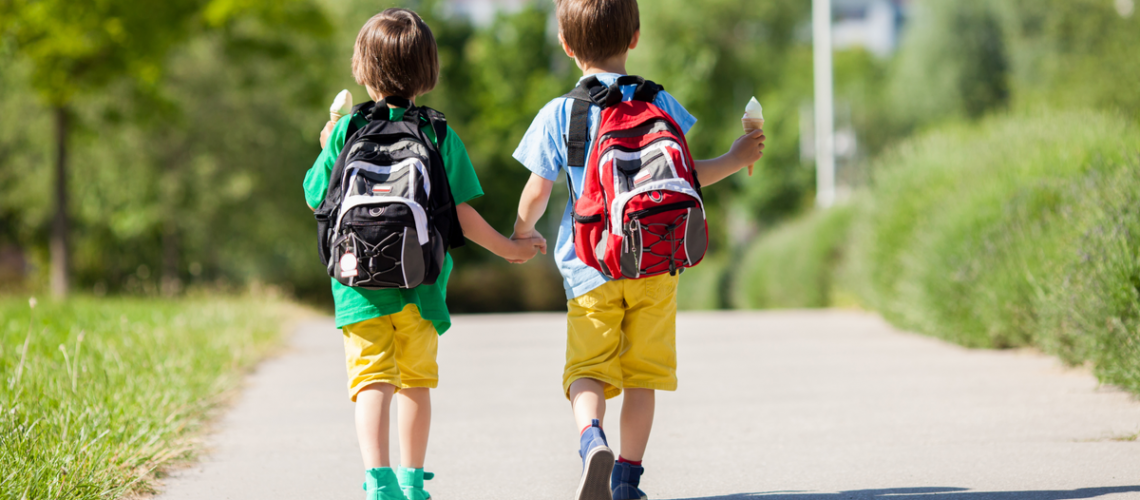From a fun preschool environment to a rigorous primary schooling; it is a big leap. It is easy to understand the anxiety and excitement that comes with it. Your little one is now required to demonstrate a higher level of independence and learning skills. As parents, it is important to manage our own emotions and expectations, and not to channel our anxieties onto our children. Transitions are an integral part of a lifelong learning process and moving up to primary schooling is just the beginning.
Progressively from K1 to K2, children will start to experience changes in learning, routines, social and emotional aspects. Some children may be excited while others may show signs of worry and unease. Not all children will respond to transitions positively, hence, it is essential for parents and educators to work hand-in-hand to prepare children and help them adjust. Children progress better when they understand that it is natural to feel worried, but what is important is also the actions they can take to ease themselves through it all.
By guiding them through these emotional and environmental transitions at a young age, we allow them to develop desirable behavioural patterns and coping mechanisms throughout life. Here are 4 ways to reassure children and show them that moving up to primary school can be an exciting and positive experience.
Let your child know what to expect.
Communicate with your child what primary school is about and how it’s going to be different from preschool. Inform them of the new routines they will learn, the different classroom environment they will be studying in, and the new friends they will make. Share what you enjoyed about your own school experiences, like recess, making new friends, learning a sport, and favourite teachers. These conversations can help your child look forward to a new schooling experience instead of dreading it. Encourage them to share their feelings about going to school and address any concerns they may have for the first day.
Attend school orientations.
Consider this as an introduction to the primary school experience. Going from being the oldest batch in preschool to the youngest in primary school, is not going to be easy. Seeing a larger group of classmates and a bigger school compound, is going to be daunting. Orientation programmes are a good place to help your child feel at ease. Other than just getting a glimpse of the environment, they could even meet their new classmates. Take a tour around the school campus and familiarise your child with important areas such as the canteen, the general office, classrooms and toilets.
Ensure academic readiness.
Give your child a head start but don’t stress them unnecessarily. It is natural to want to research on Primary 1 syllabuses to prep them with all the knowledge they need in advance. Focusing on your child’s literacy and numeracy skills will give them the advantage they need to cope with their new curriculum. Young children will feel more relaxed when they are able to understand instructions and carry them out. In essence, this is what GUG Preschool champions and practices. Through plenty of playful learning and hands-on discovery, we nurture fluent readers and budding writers.
Introducing new routines.
As children progress from a familiar setting into a new environment, they will be more receptive to new ways and challenges if they have successfully adapted to the environment, expectations and routines. To ease your child’s transition process, go through the new routine with them. Allow them to slowly acclimatise to a timetable with allocations for different activities throughout the day. They may need to get used to waking up early and catching the school bus. Help your child to be familiarised with the school rules, classroom etiquette and how to seek help when needed.
While we might not remember how we felt on the first day of Primary 1, we can relate to first day jitters. This is just the beginning for your young one. It makes it invaluable for them to develop a strong sense of confidence and courage to build new friendships and to continue to grow and excel. During this exciting time, dedicate time to listen to what they have to say about their day. Sometimes, all they need is your support. When children are facing problems, it is important that parents solve the problems with them and not for them. Your little one will eventually grow up to a teenager and then a young adult. Time will fly by, but don’t forget to celebrate their growing independence every step of the way.








